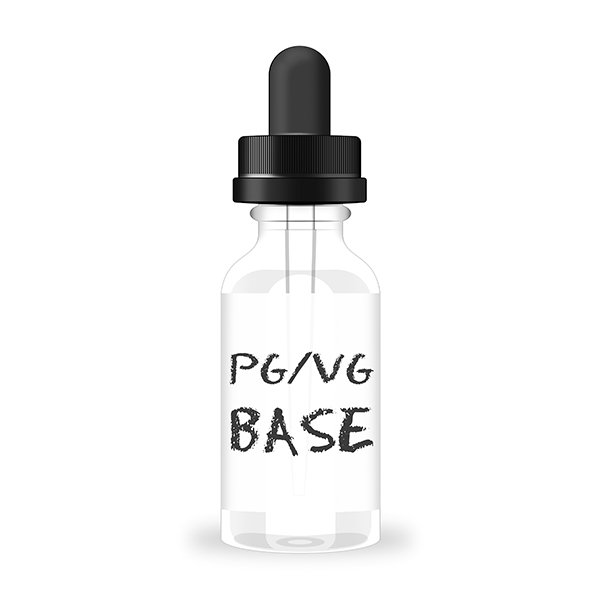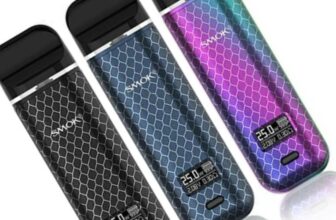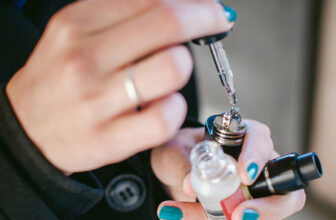
Is nicotine-free vaping safe, and if so, why are people doing it with nicotine? Doesn’t that defeat the purpose of vaping, well, since the e-cigarette was invented simply as an alternative to nicotine? There are many questions that fill the mind, and fortunately for you, we’re here to answer them with a breakdown of ingredients.
Is Nicotine-Free Vaping Safe?
That depends on who you are asking. The most self-conscious person would tell you that anything you put into your body, other than oxygen, isn’t safe for you to inhale into your body. But, then again, if that is the case then we may as well not walk outdoors due to outdoor air pollution, which is the leading risk factors for premature death, killing as many as 3.4 million people each year.
Ask any vaper is nicotine-free vaping safe and they’ll be more than glad to tell you that it is. Though I am not selling you anything and the FDA doesn’t have restrictions on me speaking my own mind but I make no health claims and will not tell you that inhaling vapor is one-hundred percent safe. However, any potential harm is reduced greatly, since after all, it is ‘nicotine-free’ vaping — meaning no nicotine.

The ironic part of it all is that the Government, media, the public, and anti-tobacco groups still believe that nicotine is the culprit behind all of the smoking-related deaths, when in fact, it isn’t. The culprit behind it isn’t the nicotine, it’s the combustion and the more than 7,000 chemicals in cigarette smoke, which 70 of them are being linked to cancer.
Nicotine vaping is far less harmful than smoking traditional cigarettes. You can simply compare the 7,000 chemicals in cigarettes to the 4, yes 4, ingredients in e-liquid. To further answer your question, let’s break down the ingredients of nicotine-free e-liquid.
Ingredients In Nicotine-Free E-Liquid
There are now just 3 ingredients in nicotine-free e-liquid. There is a base that helps create vapor, dilute the liquid, and enhance flavor, which is known as propylene glycol and vegetable glycerin, and there is flavoring to create those delicious tastes to make the experience more enjoyable.

Propylene Glycol
This isn’t some mysterious chemical that people are just stuffing in the liquid. It is in fact a much-needed ingredient. Propylene Glycol is thin, non-toxic, and it is often used as a carrier for flavors in food products. It is also an ingredient in food coloring, along with being used in various medicines as well. Propylene Glycol can be a little harsh, so it is blended with Vegetable Glycerin in e-liquid to create a smoother experience.
Vegetable Glycerin
Vegetable Glycerin, on the other hand, has a higher viscosity, so it is a much thicker liquid. It’s also sweet and is vegetable-based, hence the name ‘vegetable’ glycerin. By itself, Vegetable Glycerin is much harder to vaporize, but when Propylene Glycol dilutes it, it is perfect for vaporizers. It’s the perfect combination of PG/VG that makes it all work smoothly. Oh, and Vegetable Glycerin is also non-toxic too.
Flavoring
Manufacturers use flavor concentrates as added ingredients to e-liquid. The flavor concentrates, whether natural or artificial, are often used in foods, candies, and drinks. The flavorings are approved for both food and beverages that are meant for human consumption. Since these flavors are concentrates, they are diluted down with the Propylene Glycol. These are flavors that are heat-safe, flavors for baking, so they are perfect to be used in e-liquid because the e-liquid is first heated, then inhaled.
Conclusion
Is nicotine-free vaping safe? We believe we’ve provided enough information regarding the matter that will allow you to determine an answer. If you are a smoker, you may want to go with nicotine vaping, as you will gain more satisfaction and get a better success rate when switching. However, if you aren’t a previous smoker and just want to vape, nicotine-free vaping is definitely the way to go — I mean, why start a habit if you don’t have to? We’re sure that is something we all can agree on.








